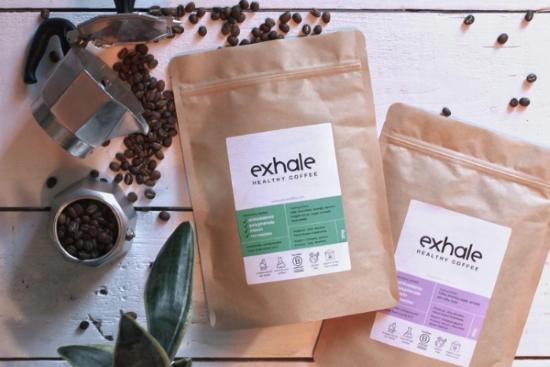Caffeine has long been touted as a performance-enhancing supplement. In fact, research dates back to 1907 when it was investigated for its capacity to improve ‘muscular work’! Caffeine was actually placed on the World Anti-Doping Agency’s (WADA) banned list in 1984 and remained there until 2004 when it was removed, and placed on the monitoring program after it was determined that it no longer satisfied two of the three criteria needed to be on the banned list.
If you’re curious about what these criteria are:
- It has the potential to enhance sport performance
- It represents a health risk to the athletes
- It violates the spirit of sport
More recently there has been an explosion in research into caffeine’s performance enhancing properties, as well as coffee’s health, and performance enhancing, properties.
What does the science say?
How does caffeine improve performance?
There are several proposed mechanisms for caffeine’s performance enhancing properties:
- Adenosine receptor binding: Adenosine promotes muscle relaxation and sleepiness and blocks the release of many feel-good substances in the brain, including dopamine. Caffeine (as well as theophylline and paraxanthine, caffeine metabolites) has a structure that is very similar to adenosine. So similar in fact, that it can bind to adenosine’s receptors, reducing the ability of adenosine to do so. This is the cause of many of caffeine’s fairly obvious effects (increased heart rate, blood pressure, wakefulness, and alertness) as well as its performance enhancing properties.
- Energy utilisation: During exercise caffeine acts to decrease reliance on glycogen usage (stored carbohydrates in the liver and muscles) and increase dependence on fat as a source of energy. It has been hypothesised that this would lead to “glycogen sparing” meaning that we would tap into our carbohydrate stores later on in an event, and thus, would experience delayed fatigue during endurance exercise.
- Endorphin concentrations: Endorphins are chemicals produced naturally by the nervous system to cope with pain or stress. They are often called “feel-good” chemicals because they can act as a pain reliever and happiness booster. Caffeine may improve endurance performance by increasing the secretion of these endorphins, and thus may lead to a decrease in pain perception.
- Neuromuscular function: Caffeine may result in alterations of neuromuscular function and/or muscle contraction. For example, it has been shown that a moderate dose of caffeine (6 mg/kg) significantly enhanced both leg extension strength as well as the time to fatigue during a sub-maximal leg extension test. To provide an example here, a 75kg person would need to consume 375mg of caffeine – that’s 5 espressos!
Endurance training – how much, and when, to take
The International Society Of Sports Nutrition recommend 3-6mg of caffeine per kg of bodyweight 30-90 minutes prior to exercise to improve endurance exercise capacity.
A study in the International Journal of Sport Nutrition and Exercise Metabolism looked at the effects of pre-exercise coffee ingestion on endurance performance and concluded that ‘coffee providing 3 – 8.1 mg/kg of caffeine may be used as a safe alternative to anhydrous caffeine to improve endurance performance’.
It’s a wide range but adds strength to the ISSN recommendation.
Staying with 3-6mg per kg of body weight, a 75kg male that would be 225mg to 450mg, which equates to 3 to 6 espressos or 1.5 cafetières! So a lot of coffee!
On race day Alex H drinks one small cafetière of coffee around an hour before the race (because it’s slower to get metabolised and take effect) providing about 150mg of caffeine. Then closer to the race, around 20 mins before, he takes a couple of caffeine pills (which are absorbed by the body much faster) adding an additional 150mg of caffeine. Pushing him up to 300mg in total. This is around 3.75x his bodyweight which he has worked out is his personal optimum level through trial and error in training.
Muscle strength and power training – how much, and when, to take
A recent meta-analyses (basically where researchers analysed a bunch of studies to form a consensus) showed significant performance enhancing effects of caffeine ingestion on maximal upper body muscle strength, and muscle power.
A recent study found a significant 3% increase in lower body strength with caffeine ingestion, using the barbell back squat 1 rep maximum as a measure of maximal strength.
So it is clear that caffeine provides a significant benefit on muscle strength and power.
Most of the literature seems to indicate that around 5mg per kg of bodyweight 60 to 30 minutes prior to exercise works best.
When Alex M from exhale coffee strength trains he has a regular exhale coffee 30 minutes before starting his session. When going for a PB in a lift he simply doubles up on his coffee! Simple!
Some of you may now be thinking though that if you are a regular coffee drinker, will I still benefit? Which leads into the question around caffeine withdrawal and its benefit in the build up to race/competition day. We’ll find out in the second part of our blog.
You can read the full article, including references, about coffee and exercise on exhale coffee’s website here.
To save 40% off the first bag in an exhale coffee subscription, plus free delivery, use the code RUN40 on the exhale coffee website






